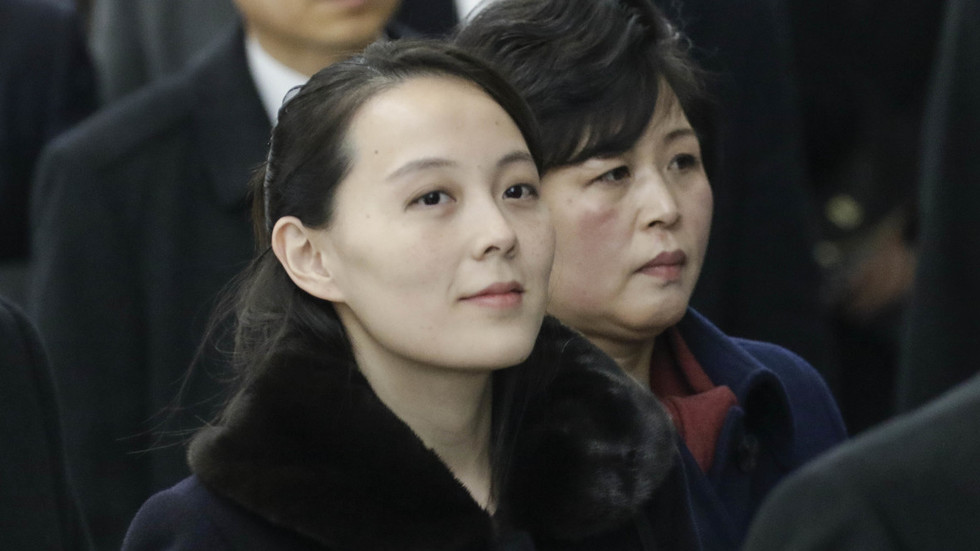Kim Yo-jong, a significant political figure in North Korea and sister of its leader Kim Jong Un, has recently issued stern warnings to South Korea regarding the implications of alleged drone incursions. She alleged that North Korea possesses evidence implicating Seoul in launching drones over the country, specifically mentioning instances on October 3, 9, and 10, where uncrewed aerial vehicles (UAVs) reportedly dropped propaganda leaflets over the capital city of Pyongyang. As a result of these perceived provocations, North Korea’s military responded by blowing up road sections leading to South Korea, effectively severing transportation links between the two nations. South Korean Defense Minister Kim Yong-hyun has not confirmed or denied North Korea’s claims, leaving the tensions unresolved.
In light of these accusations, Kim Yo-jong made it clear in a statement published by the Korean Central News Agency (KCNA) that North Korea views South Korea’s actions as serious violations of its sovereignty. She emphasized that North Korea has gathered “clear evidence” identifying South Korean military personnel as responsible for these so-called hostile provocations. Moreover, she warned that those responsible would face significant repercussions, raising the tension between the two Koreas. The threats made by the North Korean regime reflect an increasingly aggressive posture in response to perceived aggressions from the South, highlighting the fragility of relations between the two states.
The situation escalated further during a security meeting attended by Kim Jong Un, who instructed North Korean military officials to enhance deterrence measures in response to the alleged drone activity attributed to Seoul. North Korea’s Defense Ministry has asserted the likelihood of further drone intrusions by the South and has taken proactive steps to reinforce observation posts in the region. A spokesperson for the ministry underscored the sophistication of the drones, arguing that such technology cannot be operated by casual users and indicating a professional military involvement. The rhetoric surrounding these incidents paints a scenario where tensions could potentially lead to military confrontation, with North Korea declaring that war could erupt “at any moment” due to South Korea’s “reckless” actions.
Amid this rising tension, North Korea has placed its artillery units along the inter-Korean border on high alert, further signaling its readiness for any potential military escalation. The North Korean military’s positioning and readiness reflect a strategic approach aimed at both deterrence and reaction to South Korean military maneuvers. This situation is compounded by the international reactions to the crisis, including comments from Russian officials who condemned the drone launches as unprecedented acts of aggression against North Korea’s sovereignty. The Russian Foreign Ministry’s spokesperson characterized the actions of the South as egregious and urged a more cautious approach in handling relations with the North.
As both Koreas engage in increasingly hostile rhetoric, the repercussions of these incidents could have lasting impacts on security dynamics in the region. The potential for miscalculation remains high, with military posturing on both sides possibly leading to unexpected conflicts. The situation necessitates close monitoring, as continued escalation could destabilize the fragile peace on the Korean Peninsula. Kim Yo-jong’s unequivocal threat of significant repercussions for South Korea underscores the serious tone of the current diplomatic standoff, reminding the international community of the long-standing tensions that define inter-Korean relations.
The broader implications of these developments highlight the ongoing complexities of North-South relations, wherein military posturing frequently supplants diplomatic dialogues. As both nations grapple with the legacy of division, incidents like the alleged drone incursions exacerbate tensions and create an environment where dialogue becomes increasingly difficult to achieve. The international community, particularly in light of Russia’s involvement, also plays a critical role in either mitigating or exacerbating these tensions. Moving forward, engaging both countries in constructive dialogue may be essential to prevent further escalation and to seek peaceful resolutions to the ongoing hostilities on the Korean Peninsula.

